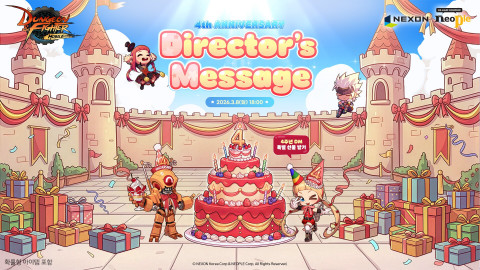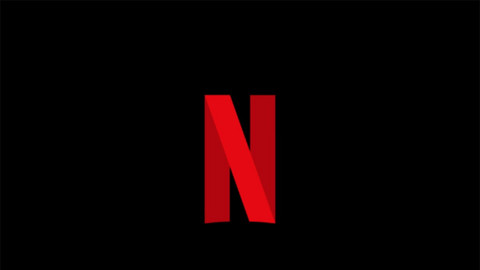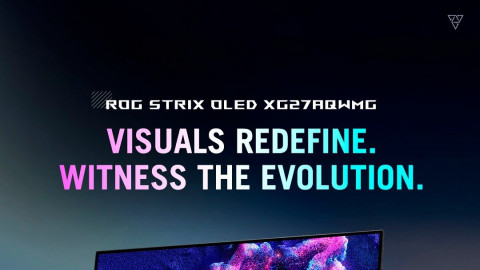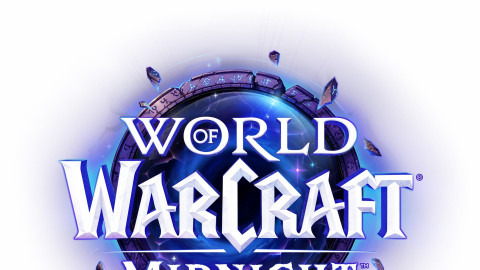Out of all the panels at IGEC 2019, one panel stood out as the most anticipated of the entire conference. "Esports Journalism: The Good, The Bad, and The Ugly" boasted an impressive lineup: Inven Global Director of Strategic Content Nick D'Orazio, Overwatch League caster Christopher "MonteCristo" Mykles, and decorated esports journalists Duncan "Thooorin" Shields and Richard Lewis. Content creator and former LCS coach Yoonsup "Locodoco" Choi served as moderator.
The forty-five minute panel was streamed live during the conference, but for those who may have missed it, a full transcript of the spiciest panel of the 2019 Inven Global Esports Conference is now available or your reading pleasure.

Locodoco: Hey guys, welcome to our panel "Esports Journalism: The Good, The Bad, and The Ugly"...I guess I'm the ugly.
Nick: Can I be the good?
Locodoco: The other three are the bad, for sure.
Thooorin: Okay, Riot Games.
MonteCristo: It begins.
Locodoco: You guys are probably wondering who I am and why I'm moderating this panel. My name is Locodoco, and I was asked by InvenGlobal to speak at IGEC 2019. I was told it would be easy, but apparently that's a lie, because I have to deal with Monte, Thooorin, Richard, and Nick.
Nick: I'm the good! Don't worry, I'm the good.
Locodoco: Let's start by introducing ourselves left to right.
Nick: Hello, my name is Nick D'Orazio. I am the Director of Strategic Content at Inven Global. The addition of strategic was a flare of my own because I wanted to be extra. Really, what I do at Inven Global is I try to make sure whatever we write has a goal and a strategy.
People can sometimes write about esports journalism with a lot of vanity and without a point. They just want to write about their favorite game, they rant, and they just have fun reviewing some game. My job is to make those people very sad, and to tell them their writing is not good.
MonteCristo: I'm actually not a journalist, really-
Thooorin: You tried it one time.
Richard: You WERE, we remember. You're still in the club, it's all good.
MonteCristo: I did do some journalism. Sometimes, I do journalism when it's convenient for me, meaning if I need to take down some people who were unethical towards me in various ways. I'm a journalist of convenience.
Richard: The best kind.
Nick: He uses it as a personal weapon?!
MonteCristo: It's not a personal weapon, it's a way to hold bad actors accountable. I do really support a lot of the great journalism that goes on in esports, and I at least can have that gratitude for it. I'm a caster right now working for a company, so I can not always say everything I would like to say, so I'm grateful for those people who do.
There's a large philosophical discussion to be had around that with everyone else on this panel. I've also produced some podcasts as well to stay active.
Thooorin: First of all, I just gave literally a half an hour talk about my esports journalism career just before this panel. I noticed half of you weren't there, so screw you. You missed the best part. So if you don't know who I am, I was literally voted Esports Journalist of the Year about two years ago, and nobody can do a damn thing about it. That's a fact. You can't go back in time.
My main job in general is I walk a tightrope of political opinions on the internet and try not to fall off. I occasionally do fall off, and when I haven't got any more s***posts to do, I have to crack down and actually write an article or do a video. I've been doing it for a while, so if you don't know who I am, I don't really know why you're here.
Richard: I'm Richard Lewis; currently unemployed.
MonteCristo: And de-platformed.
Richard: Yeah, I'm in the process of being un-personed from the internet, so it's a good time to start networking. If there are any job offers, I will listen. I've been doing investigative journalism in esports for about fifteen years, and made a lot of friends doing that. As this industry gets bigger, more money comes in, and the stakes get higher, the truth becomes a very scarce commodity.
I thought I could quit journalism. There's a phrase Hunter S. Thompson coined which is "The Fire in the Nuts" which refers to when you get so hyped up about doing one thing that it's all you want to do. It's all you know and you get this drive.
I've been trying to quit journalism for about three years. I went to E-League and hosted the TV show. I thought that would fill the hole. It didn't. After that, I became a director at a company making lots of money. I thought that would fill the hole. It didn't. I just quit that job the day before this panel to come and talk about journalism which is pretty much all I know and all I want to do.
Locodoco: Richard, let's go a bit deeper on that. What is esports journalism?
Richard: Alright, Dr. Phil. It's a stupid distinction, and one I've always hated. I hate calling myself an esports journalist. I hate introducing myself as an esports journalist; it was especially stupid ten years ago because no one knew what that was. No one even knew what esports was.
I never defined myself as an esports journalist. I went to university and studied journalism. I wanted to be a journalist at a very young age. Esports journalism is simply journalism in the esports space. Unfortunately, what you increasingly find is that there are people who define themselves specifically as esports journalists. What that means is they place limitations on the type of work they're willing to do to exist in this space.
It's like the esports is more important to them than the journalism, and that's the big issue. They want to be a part of the community and be part of this industry, but as a journalist, you have to tell the truth. You might have to go say something deeply unpopular that might put you out of a job for a year, are you willing to do it? A lot of people say no. Making the distinction of esports journalist means being wary of people that call themselves that. I think you're either a journalist or you're not.
Nick: I think a lot of people in the space have had that same hesitation. I often had that hesitation early in my career. I've always considered myself a content creator or a games writer. When I first got started on a blog no one cared about, I wrote about strategy. I wrote about builds and game reviews. I think a lot of the people who first started off in this have long been told they are ames journalists. They try their best to do it, but they don't necessarily have the training.
Locodoco: For most people, esports journalists can be anything from game reviewers to people just talking about streamer drama. What are some of the best works you guys have published in the field of esports journalism?
Thooorin: My preferred title is Esports Historian because my style always was writing articles about great teams, chart history of teams and look for trends. That is part of journalism because you can write things that are poetic in the medium of historical journalism. However, I will say that Richard is being very precise about journalism in that sense. If you're there to investigate and there to explore, you can't be like the people who were here 10 years ago who were all part of this small industry.
Everyone is at the same after party, and everyone is friends with the same player, and then guess what? Your friend is the criminal. Your friend is the one who screwed someone over, and you might say something like, 'Well, not my business. I'll just do my article on how Halo 2 is a really sick game.'
Richard: Which it is.
Thooorin: It was alright, wasn't it?
Nick: But you want to get invited to the Halo 2 afterparty, right? Don't you want to get invited to the closed access? That's why people would write in that way.
Richard: I think it's just an important thing to realize that there are multiple types of journalism. I came up in a time where the word 'blogger' was a derogatory term, but doing a blog where it's your thoughts is a type of journalism. Historical pieces are a type of journalism. Write-ups about games are a type of journalism. There are just different forms, and without wanting to sound conceited or arrogant, the different forms have varying levels of weight and importance.
There's also journalism that is just plain garbage that's only designed to farm clicks. I'm not even talking about clickbait titles, I'm talking about re-writing someone else's news post from another website and put it on your site with a slightly better title. What's the value in that? The answer is absolutely nothing. It's the devil making work for idle hands. It serves no purpose. If you're doing that garbage, and you have no desire to move to the next level, I can't respect you.
Up a notch from there are match reviews and recaps and those types of works. This is valuable because it's a matter of historical record. If you go up another notch you get to Thooorin's type of content. Thooorin is very important because he curates all of the storylines that we've had across multiple games throughout the years. That has huge value. You might disagree, but interviews I think would be next. Good, longform, well-researched interviews is also something Thooorin does.
This probably comes across as a little bit arrogant, because we're getting into my wheelhouse now, but I think the highest form of journalism is investigative. There's not enough of it because people are terrified to do it because of the constraining politics of the industry. We live under the tyranny of game developers. It's their ball and they get to take it away at any time.
If you want to exist in this industry, you have to know developers think they hold all the cards and have a large say. The majority of people who want to do the type of work I'm talking about are afraid of that. They want to work in the industry so much that they're terrified of the prospect of having it taken away. That's the reality, and that's why I think investigative journalism has the most value. It's important to keep the industry honest, but it's also the most dangerous work.
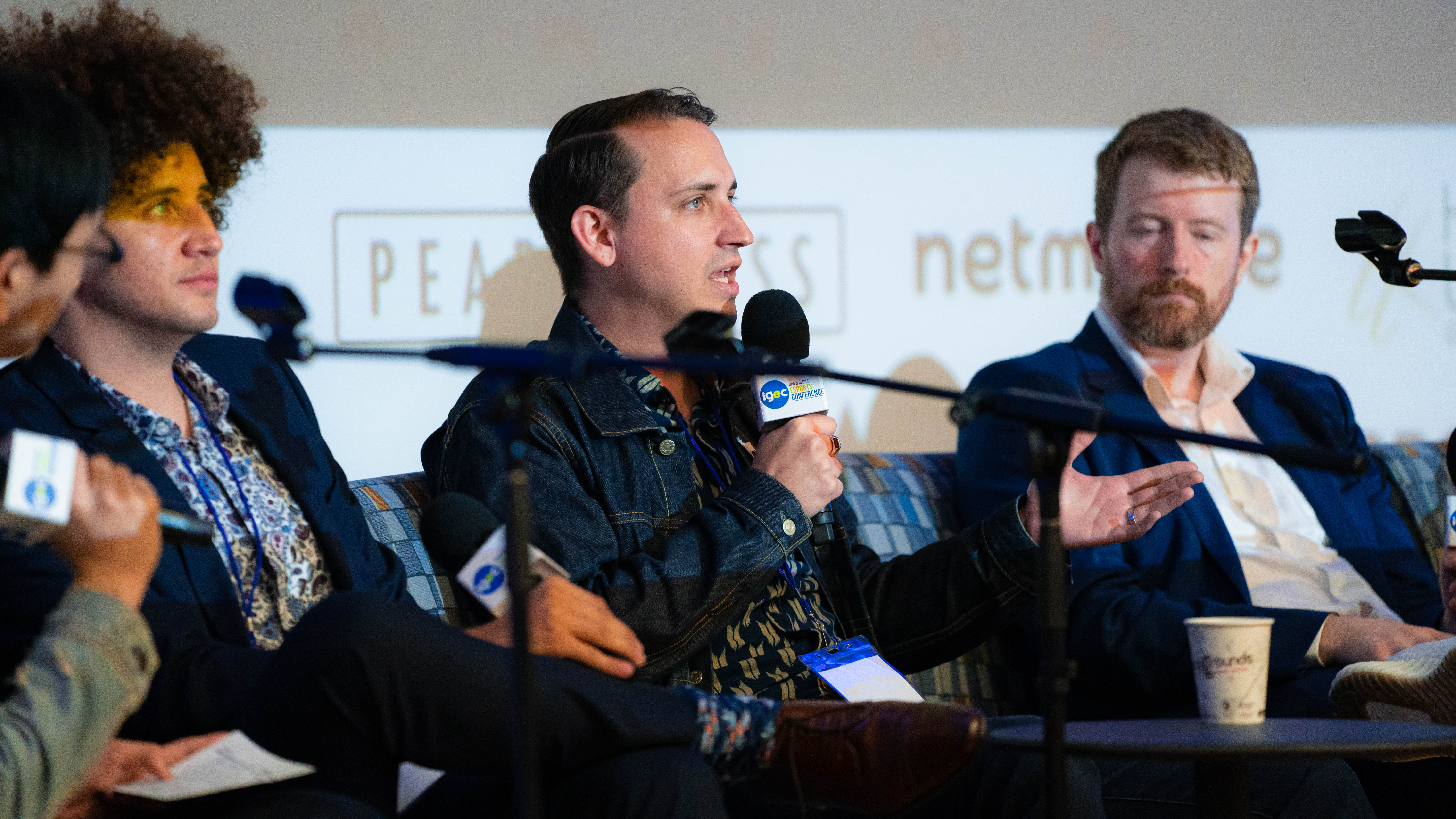
MonteCristo: One of the biggest problems we have in esports journalism is people get so tied up with whether they personally like the journalist without looking at the value of their work.
Thooorin: We are pretty unlikeable people, to be fair.
MonteCristo: Exactly right. But part of that is because we don't care what people think about us and we're willing to go that extra mile. People have been around the industry for 10-15 years realize how exploitative and corrupt this industry has been at times. It's hugely problematic. We only do this because we really f*****g care about esports, and we don't want to keep putting up with the same exploitative bull**** over and over again.
Richard was a key part of taking down these CS:GO gambling sites that were rigging the odds and encouraging children to gamble. It was literally a multi-billion dollar industry, and it needed to stop. People still give Richard crap for a bunch of other stuff without even looking at the fact that he broke not just one of the most important stories in esports, but in all of gaming.
In the limited amount of journalism I've done, I've been here today with people who gaslit me and lied to me about caster rates. The result of me taking a public stand on that was a literal doubling of caster rates in some games. I feel good about that, but it cost me so much personally. I was basically exiled from a game forever as a result.
Thooorin: I also echo Richard's sentiment. In the hierarchy of esports journalism importance, I would put investigative journalism at the top. Even though historical stuff is my main passion, I don't get killed over historical rankings. Well, as long as TSM fans aren't in the audience. We're not quite at that point yet, but yeah, you could get killed. There could be real life consequences for your career, your person, and your reputation.
I could do nothing but write historical articles because there's so much cover at this point in time. However, I still do investigative pieces here and there myself because that's a story that has to be told. Even though I could write the article that just gets the safe hits, you sometimes have to be willing to take the bullet.
There's a great bit in that rubbish movie 300 at the end where Leonidas throws his spear and nicks the edge of the god-King of Persia. That's what journalism can do. You can't take down the god-King or stop the evil empire, but you can make it known to people what they actually are and you can get that one nick of blood. That one nick of blood is worth more than you might realize.
Nick: You mentioned the potential consequences. I think the reason these three gentlemen here with me are speaking about this with such passion is because they have been doing it for such a long time and that is precisely what gives them the confidence to take those risks.
I have managed a lot of writers over time, and many of them get intimidated out of the industry. They are drawn to esports and games because they're young, and they work on the low salaries that games journalists were paid years ago because they're young and they accept that. You can try to ask them to write something critical about the game you love, but half of them want to work for that company. They view games journalism as their in into the industry.
It's a hard ask, especially because they have to go through and put on the investigative journalist hat, and that's not what they signed up for. They just wanted to write about games and wanted the chance to interview their favorite players. Historically, there are very few investigative journalists in esports.
Locodoco: You guys are talking about all the sacrifices you have to make to be in the field. What makes it worth it for you personally?
Thooorin: Nicking the person in the face is pretty cool. Richard and I have discussed this many times, and one thing we agree on is that you have to be a bit nuts. There has to be some reason to drive you.
For example, if I do an article publicizing a team who is owned by the same company organizing a tournament the team is competing in, people will accuse me of not liking that company. They're right, it's a brilliant motivator to find all of the real things they've done that are wrong and expose them at the cost of my own integrity and career. That's actually a pretty good way to do it.
I may have my own personal reasons for doing that story, but it's not like I made the story up. The story is real, and that's the distinction that a lot of people miss. You don't just pick your enemy and think to yourself, 'Alright, what am I going to make up today?' Luckily, our enemies tend to be the scumbags. It's easy to find reasons to hate these guys.
Nick: There are a lot of other ways in which a journalist in esports can make the environment better. Recently, one of my favorite things I've written is a piece titled, "Overwatch Players are Tired." I interviewed players throughout the entirety of season 1 of the Overwatch League, and through all of my interviews with them, I curated all of these quotes. When you add all of those quotes together and put it in context, it did paint a picture that a lot of players thanked me for writing.
Players feel like they can't say anything about these subjects because they're playing in the Overwatch League, so no one wants to hear them complain. So there are the nicks you can get by throwing spears, but sometimes pro players don't have a voice for themselves to tell these stories. You can really do some good with some passionate, long-form interviews.
MonteCristo: I think it's always important to note that no matter what the companies and teams say about their environments, it is always bull****. At the end of the day, these companies exist to be businesses and to make a profit.
You have to keep in mind that they are designed to make the maximum amount of money possible, so someone from the outside has to keep them in line.
Richard: I'm a bit of a lefty. I don't like corporations as a rule. They're all full of **** and they'll lie to your face. They stick a rainbow flag on their beverage for Pride Month while continuing to do business with a company that executes gay people, and we're all supposed to applaud them.
It's not just about sticking it to those guys, even though it is a delight every time you get to do it. There is also a component about giving a voice to the voiceless. We were exposing terrible contracts and shaming organizations into doing the right thing. There was money owed to players for months, sometimes years.
Every time I thought I was going to get out of this and make myself some of this esports money, there'd be another contract that would be an absolute disgrace. If I don't answer the call, that kid's just stuck with that contract.
I broke a story just this year about Rick Fox, and it was so surprising to me. Rick Fox is a great guy and a great ambassador for esports. He started his own esports organization as part of that first big spearhead of venture capitalist money coming in, but he did one better. He was going on all the talk shows like the View to fight the good fight for every esports fan in this room, and it's real. It's not bull**** with him.
I found out Rick Fox was being racially abused by one of his own shareholders internally, and he couldn't do anything about it. Imagine that! Imagine being Rick Fox, and you can't do a damn thing about a shareholder racially abusing you, and no one on the board is going to help you out. It's on me, right? I published it.
Rick was too coy, and didn't want to give me any comment. I've done followup stories, and this shareholder is every bit a piece of **** you think he would be. He's got some crazy stuff in his past. Being able to help someone in the space as powerful as Rick Fox — that's the juice. That's why I do it.
Thooorin: Jokes aside, the historical components of esports have been very important to me for a long time, but even outside of esports as well. When I first started watching the NBA, I wanted to know the differences in playstyle in the 80s compared to the present day at the time, or how an individual matchup had played out over the years.
There was a long time in esports where even pro players didn't care about that. My old joke was that trying to get a player on board with that type of content was like being a foot fetishist waiting outside of a model's shoot to snap a few pictures of their feet.
Richard: That is a super specific example.
Thooorin: Do what you love! Anyway, the point is that I wanted to care about how different players from different eras stacked up against each other. But sometimes, pro players don't want to acknowledge the historical components because it puts pressure on them. They don't want to feel like they have to deliver in that way, but when they've been retired for five years and you contact them for an interview, you should see the amount of gratitude they have.
These players know the reason that people remember their name is because you wrote their story. Someone has to be there to make it known that history is alive in the present.
MonteCristo: Thooorin, you created an entire esports genre of content that I also make in unscripted, long-form content. You and I together developed a long-form esports podcast that became the definitive model of podcasts across other games. So many people have followed Thooorin's lead and shown that there is a demand for in-depth content from fans.
Locodoco: Richard, when you first broke the Rick Fox story, it was initially incredibly hard to read it due to your relationship with Reddit. How do platforms like Reddit and Twitter affect journalism
Thooorin: How much time have you got?!

Richard: Don't worry, I'll keep this one real brief. It does make me laugh a little bit that Alexis Ohanian wants to invest in esports when Reddit is a platform that censors journalists more than just about any other platform. Fix that.
If someone is telling me I'm wrong and I know that I'm right, I have to tell them a million times and tire them out. I'm a pitbull. I'm not a nice guy a lot of the time, because you can't be. You have to be a bit of a prick sometimes. It is what it is. I don't want to win a popularity award, I want to fix the problem i'm approaching.
I've been banned by Reddit. I'm de-personed from a platform that actually has boards dedicated to pedophilia and white supremacy. I don't know how I ended up being the one guy they ban. They won't reply to my emails; they don't reply to my legal team's emails; it's insane. It's entirely about the types of stories I write and the fact that I won't let volunteer janitors on a website tell me what I can and can't write about. I'm never going to do that.
Reddit killed off all of the traditional webistes. It played a huge part in the downfall of OnGamers when it was banned because the publication's business model was built around it. The problem with Reddit is that it has this extra tier of editorial input from strangers as moderators.
I don't know how many people in the audience write here or are aspiring journalists, but try to imagine a situation where your editor asks you to write a story. The editor approves of it, you publish it, it goes on Reddit, and some pleb who is a volunteer mod on a website who happened to be there on Monday says, "I don't like that article. No one can read it." Deleted. Gone. Thanos'd.
How does that work?! What is this insanity? Why are we signing up for that? The problem with Reddit is the mods. It's got a system that relies on human moderation. Humans suck!
MonteCristo: It's not even just humans sucking. These mods aren't even qualified to do this kind of work. The way you get control of a new esports subreddit is being the fastest person there when a new game is announced. You're literally squatting on it, and no one can get you out of that position. That's completely unreasonable.
Richard: Reddit is the worst. Reddit is the most censorious platform. Social media in general is as much of a problem as it can be a boon. On one hand, I have my platform now and I can put things out on my platform that I've spent fifteen years meticulously building along with my brand. If I hadn't done all of that, it's at the whim of the tyranny of the majority.
Once the content is on the internet, it's out of your hands. The way my story gets spun or the bits that get quoted by people is out of my control. A lot of times people will simply say my story is a lie because I wrote it, despite my 100% accuracy record across 15 years. People will buy it, and they can downvote the story, which is a mechanism I never understood. It's a mess. Social media is a nightmare. It's good for discovery, but nothing else.
Nick: To touch more on the Reddit issue, Inven Global has seen its fair share of problems. Currently, Inven Global's domain is shadowbanned on the League of Legends subreddit. It's actually quite comical, because people have created threads asking why our content is no longer showing up on the subreddit and moderators just remove them.
Richard: I had mods demand I out sources to them before they would approve stories. Think about the grotesque unethical conundrum of that. I might get fired from my job because my employer isn't getting page hits, and the only way around that is if I go against the sworn ethical duty of a journalist and out my source.
Nick: Richard could write something, and someone could just copy everything he just reported on and they are now encouraged to not cite Richard or even mention his name. If they include his name, they can't post it on Reddit without it being removed. Reddit's a great thing for sharing, exploring, and finding your niche, but it's problematic for journalism.
Thooorin: Something Richard touched on earlier is key to the entire social media platform issue. When I worked for OnGamers, the aforementioned site that got content banned, one of the reasons we were banned was because someone in the company was engaging in vote manipulation of their own volition. That fed the view that admins of reddit have now, which is that we're just a big content machine.
When the Reddit admins saw that one person had done vote manipulation, they told us that it's obvious that our entire company was engaging in vote manipulation. Not only do they not understand what we're doing, but if you're a bigger voice, you're going to get hit with the rulebook all the time. Even if it's always the platform itself, it will be the media putting the pressure on the platform.
Richard: Facebook decides what you can and can't post. Twitter just removed the accounts of a bunch of Chinese activists just before the anniversary of the Tienanmen Square Protests. Social media isn't doing a lot for journalism right now.
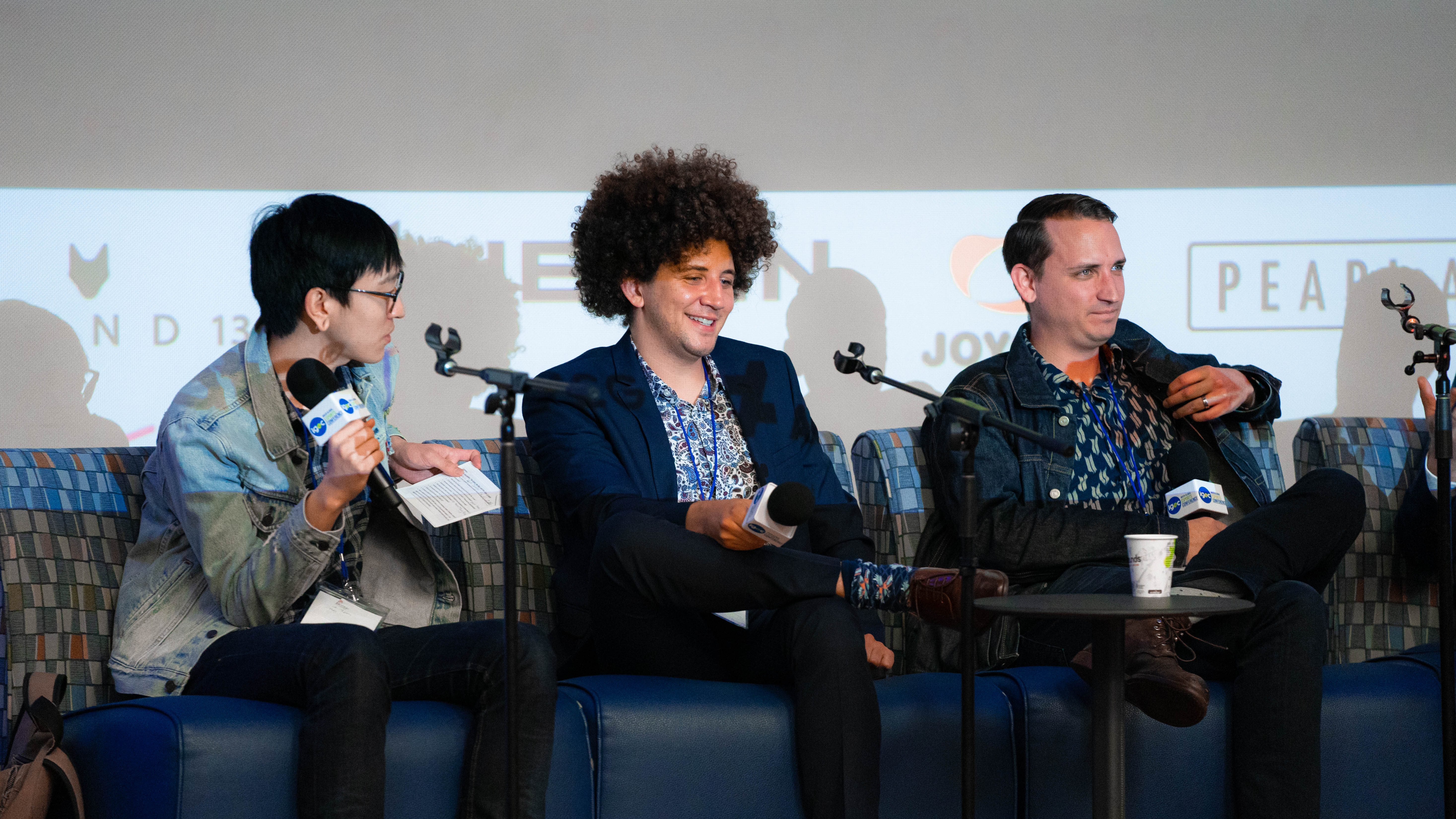
Locodoco: What does the ideal future look like for esports journalism? From what you guys are saying, it sounds pretty grim.
Richard: We should talk about some of the good, you're right.
Nick: We've covered a lot of the bad and the ugly, so hopefully I can highlight the good. Like Richard said, if you spend time building up your own platform, you won't need anyone else's. You could write an article on Medium, and if it's the truth, no one's going to stop you from doing that. There are shining examples of people making their own brand through social media. There are some positives to social media, and I'd say Twitter is probably one of them.
MonteCristo: One of the problems esports has is that it's audience is generally young. I do think that's a contributing factor in people conflating investigative journalism with their personal feelings towards a person or game.
Plebs are always going to do that to some degree, but as the audience gets older and more wizened in five to ten more years, they'll have more perspective and will have seen enough of these stories across games. They will hopefully react in a more favorable way towards the journalists and believe them.
Richard: I thought for a long time Twitch could be part of the solution, and then Amazon bought Twitch. I love you Twitch guys in the audience here, but you're owned by a huge corporation right now that also owns its own news outlet, so let's not put too much hope there.
One of the things we need are platforms that can legitimately monetize this type of content. It doesn't have to be vast amounts of money, but the problem we have is the existing platforms that have been super popular are too in the spotlight. Wall Street Journal is forcing YouTube to take ads off of certain types of content.
All of my stuff gets demonetized because I talk about Counter-Strike, and Counter-Strike is a game with guns. I have to appeal, and most times it will be lifted on appeal, but by that point, I make nothing. I can't even be an independent journalist and put stories on YouTube.
Caffeine is throwing money around left and right. Instead of giving it all to streamers, they should open up a news division with some of their budget. Maybe hire an unemployed investigative journalist for lots of money...just spitballing ideas.
I've never seen something like that. Twitch doesn't have their own news division, isn't that weird? They have all this money, so why not have a news division? We need newer platforms with solid monetization models that can't be messed with so journalists can do the work without needing an employer. They can find an audience on their own.
Thooorin: For me, not just in esports, but media in general needs to be more effectively monetized. One of the stupidest things someone told me back in the day was that I wouldn't be around when esports got big. They said it would be some mainstream journalist or a talk show host on BBC. I'm telling you that it won't be the case.
If you see a mainstream publication cover esports, they don't know that they're talking about. They have the journalism skills in theory nowadays, but they don't have any of the background. The people you actually need are the people who have been in the industry long enough to tell the stories. Esports fans can spot a fake. They know when you know what you're talking about, and they know when you're blowing smoke up their you-know-what.
No one is going to read the same Wall Street article "Did you know Esports is a thing?" 15 times. Someone who can actually tell the stories and create this content is necessary, and who better than the journeymen who have been esports from the beginning?
Locodoco: It seems like we're chasing a unicorn. Platforms want hits, and all of the pieces you guys publish require so much work and quality. Low quality content can generate hits while being much easier to work out, so I am worried for the future.
MonteCristo: I know people on this panel are sitting on stories that literally no platform will publish because the stories are too hot. They're about really bad things, and unfortunately, there's nobody out there willing to take the risk.
Nick: Blacklisting is real.
Richard: I've been on some good ones. I was blacklisted by pretty much every NA organization at one point, and Activision Blizzard now.
Thooorin: In esports, you're nobody until you've been un-personed.
Nick: I think we've gone back to the ugly now...
Richard: Well, the positive is a lot of those blacklists did get rescinded.
MonteCristo: The cycle is if you do it enough, eventually they'll like you again, because you'll start ragging on one of their competitors.
Richard: I had a high-level Blizzard employee say something like that to me once. We were on a train going to an event, and the whole Blizzard crew was there. One of the executives leaned over and said, "We just want to thank you so much for banging on Riot Games all the time." And I said, "You do realize that as soon as it's your turn, it's your turn, right?" Then the train went quiet. Then it turned out it was their turn.
Thooorin: It still is.
Richard: And it will be for some time.

Locodoco: Gentlemen, it was great having you. We're almost out of time, can I grab your final thoughts?
Nick: If you're a PR person or if you would work for a game developer, you can do a lot of good by convincing people that we need to let people write critically about your game. Critical people need to be invited to events and be given a chance, because if they're not first, they can't get any views. If they don't get any views, they can't get a job.
MonteCristo: It's very important for the fans and people in this industry to support quality journalism, even if it exposes ugly truths. That's something we all have to collectively agree on, because it's one of the only ways that we can improve quality across the industry, which is something we all want.
Thooorin: You might not like to hear the story of something messed up happening within a team you support or with a player you like. Your first reaction is that you don't want it to be true, but if you then attack the journalist, what happens when the player you support is now the one getting screwed? You can support this type of journalism passively by being chill and not going too crazy.
Like Richard said, you're going to get your turn and it's going to be bad. You're going to go through the fire if you've done the things you've done, because as I alluded to earlier, there are no company values. The only value is the value of their stock. If you're one of those companies, just shut up when it's your turn. Don't lie, because you want someone there to take down your competitor when they're the one screwing everybody over and he's getting the competitive advantage out of your ethics.
In most cases, to pretty much everyone, just shut up.
Richard: For anyone who is thinking about moving into esports journalism, I know I've made it sound like it absolutely sucks, which wasn't my intention. At the end of the day, if you put more importance on the esports aspect than the journalism aspect, there's a million different things you can do. You're obviously not a journalist and you will find yourself compromised at some point.
You won't enjoy that feeling of going to the party and being in the room with that person who did that bad thing. You know about it, and now you're dirty and complicit. If you want to do it, you've got to do it right and go all the way.
No matter what anyone tells you, they cannot kick you out of this. They'll try, but they can't. It's too big. They've been trying to do it to me for fifteen years. I'm still here, and I'm still annoying people, so you can do it too. If you want to, make sure you do it.
Sort by:
Comments :0


